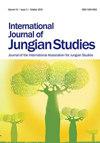Carl Jung and the Psychedelic Brain
Q4 Psychology
引用次数: 2
Abstract
In this essay, I outline an approach to analytical psychology based on the emerging disciplines of psychedelic neuroscience and psychedelic assisted therapies. During the 1950s Jung made brief comments on the use of psychedelics in traditional cultures and therapeutic contexts. I analyse these comments in the light of consequent research in the field. Contemporary psychedelic researchers are achieving impressive results in the treatment of mental illness and various forms of existential distress. A number of theories have been proposed to explain these results. In this essay, I will explore the idea that psychedelics facilitate a transition from our recently evolved secondary consciousness associated with the default mode network, to a more affect-based form of primary consciousness. I will also apply these findings to ethnographic accounts of traditional psychedelic use in Africa and Latin America, highlighting the usefulness of a Jungian approach to this material informed by psychedelic and evolutionary neuroscience.荣格与迷幻的大脑
在这篇文章中,我概述了一种基于新兴学科迷幻神经科学和迷幻辅助疗法的分析心理学方法。20世纪50年代,荣格对迷幻药在传统文化和治疗环境中的使用发表了简短的评论。我根据该领域的后续研究来分析这些评论。当代迷幻研究人员在治疗精神疾病和各种形式的生存痛苦方面取得了令人印象深刻的成果。已经提出了许多理论来解释这些结果。在这篇文章中,我将探讨这样一种观点,即迷幻药有助于我们从最近进化的与默认模式网络相关的第二意识转变为更基于情感的初级意识。我还将把这些发现应用于非洲和拉丁美洲传统迷幻药使用的人种学描述,强调通过迷幻药和进化神经科学对这些材料采用荣格方法的有用性。
本文章由计算机程序翻译,如有差异,请以英文原文为准。
求助全文
约1分钟内获得全文
求助全文
来源期刊

International Journal of Jungian Studies
Psychology-Applied Psychology
CiteScore
1.10
自引率
0.00%
发文量
10
 求助内容:
求助内容: 应助结果提醒方式:
应助结果提醒方式:


